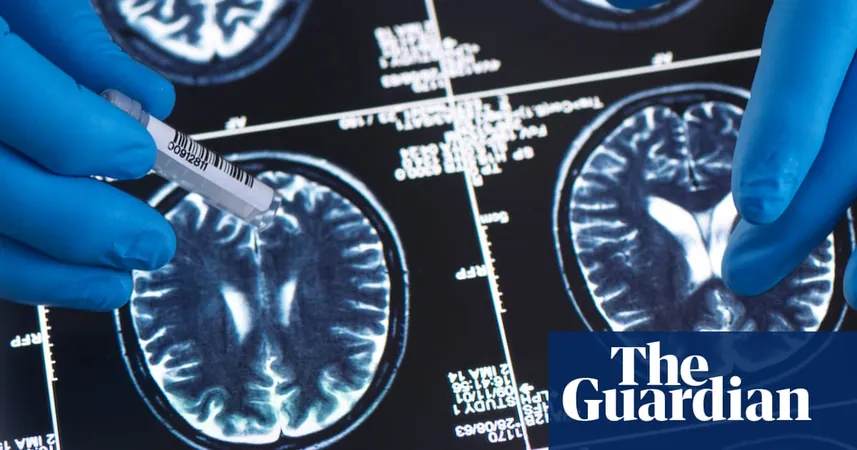
Revolutionary Brain Tumor Diagnosis: Get Results in Just Hours!
2025-05-21
Author: Siti
Imagine cutting weeks off the wait for a brain tumor diagnosis—researchers claim this breakthrough could soon be a reality! A new method promises to deliver rapid results, potentially transforming treatment options for patients.
Every year, around 740,000 individuals globally are diagnosed with brain tumors, with about half being benign. Traditionally, when a tumor is detected, a sample is taken during surgery, leading to a painstaking wait for pathologists to analyze the cells under a microscope. Often, genetic testing further complicates matters, delaying treatments such as chemotherapy.
The Game-Changing Technology Behind Fast Diagnoses
Researchers from the University of Nottingham have introduced a game-changer: nanopore technology. This innovative technique uses devices filled with tiny pores that can unzip DNA strands. As the DNA threads pass through these pores, the electric current changes, revealing intricate details about the genetic makeup of the tumor.
The researchers reported their findings in the journal Neuro-Oncology. Preliminary trials indicated that the method could classify tumor samples with astonishing speed, achieving a remarkable 90% accuracy.
Speed Matters: Quick Results Could Save Lives!
In their trials, 76% of tumor samples were accurately classified within just one hour! This could mean that results are available mere hours after surgery, giving surgeons critical information on whether they need to adjust their approach—potentially saving lives and improving patient outcomes.
Prof. Matthew Loose emphasized that rapid diagnostics not only provide answers sooner but could also open doors to innovative treatments. For instance, if surgeons can identify the tumor type quickly enough, they might administer targeted drugs directly during surgery, leading to groundbreaking therapeutic strategies.
What’s Next for Faster Brain Tumor Diagnoses?
Experts believe that this technology might not only hasten diagnoses but also enhance patient enrollment in clinical trials for new therapies. Dr. Matt Williams from Imperial College stresses that while faster diagnoses are promising, the challenge lies in effectively integrating this technology into current surgical practices.
As the research community continues to explore these advancements, the hope for quicker, more accurate brain tumor diagnoses shines brightly on the horizon, potentially changing the landscape of cancer treatment forever.



 Brasil (PT)
Brasil (PT)
 Canada (EN)
Canada (EN)
 Chile (ES)
Chile (ES)
 Česko (CS)
Česko (CS)
 대한민국 (KO)
대한민국 (KO)
 España (ES)
España (ES)
 France (FR)
France (FR)
 Hong Kong (EN)
Hong Kong (EN)
 Italia (IT)
Italia (IT)
 日本 (JA)
日本 (JA)
 Magyarország (HU)
Magyarország (HU)
 Norge (NO)
Norge (NO)
 Polska (PL)
Polska (PL)
 Schweiz (DE)
Schweiz (DE)
 Singapore (EN)
Singapore (EN)
 Sverige (SV)
Sverige (SV)
 Suomi (FI)
Suomi (FI)
 Türkiye (TR)
Türkiye (TR)
 الإمارات العربية المتحدة (AR)
الإمارات العربية المتحدة (AR)